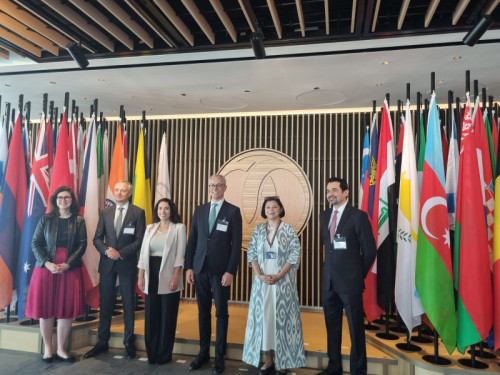Finance
ACWA Power lands financing for Central Asia’s biggest battery storage project
The Saudi Arabian developer has reached financial close for the Tashkent Riverside project in Uzbekistan, which includes a 200 MW solar plant and a 500 MWh battery energy storage system (BESS).

By
Marija Maisch
Jul 02, 2024
Finance
Grid-scale
Industry
Projects & Applications

Image: ACWA Power
Saudi-listed ACWA Power has announced the completion of the dry financial close for the $533 million Tashkent Riverside project in Uzbekistan, near the country’s capital city of Tashkent.
The greenfield development will involve a 200 MW solar plant and a 500 MWh BESS that will serve to stabilize the Uzbek grid. According to project proponents, this will be the largest BESS in Central Asia.
The financing documents were signed with six lenders including the European Bank for Reconstruction and Development (EBRD), Islamic Development Bank, DEG, Proparco, Standard Chartered, and KfW-IPEX Bank.
Total debt from the signing stands at $386 million, making up more than two-thirds of the total cost of the project.
The project will play an instrumental role in achieving Uzbekistan’s ambitious targets to transition to a low-carbon economy as well as diversify its energy sources. By 2030, Uzbekistan is aiming to install 25 GW of renewables and generate 40% of its electricity from renewables.
Uzbekistan is ACWA Power’s second-largest market in terms of investments. Its current portfolio in the country comprises 11.6 GW of power, of which 10.1 GW is renewable, as well as the nation’s first green hydrogen project, with a capacity of 3,000 tonnes per year.
ess-news.com |






